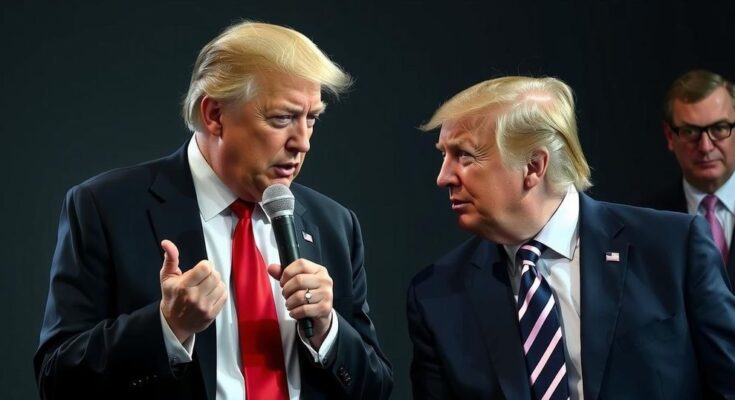Elon Musk has been appointed to lead the Department of Government Efficiency under President Donald Trump, tasked with dismantling government bureaucracy. His role aligns with past business practices, indicating his readiness to implement significant changes. Musk’s political loyalty to Trump, highlighted by substantial financial support, positions him as a key advisor in the administration, impacting policies across multiple domains.
In an unprecedented move, tech mogul Elon Musk has reportedly been appointed to lead the newly created Department of Government Efficiency (Doge) under President Donald Trump. This ambitious initiative aims to sweep away the entrenched bureaucracy in U.S. federal government operations. Musk’s directive will include slashing needless regulations and pruning wasteful spending, a role he has eagerly awaited, hinting at a desire for greater influence over the regulatory frameworks affecting his vast business enterprises. Musk’s vocal criticism of government spending, believing it could be reduced by at least $2 trillion from its current $6.5 trillion budget, aligns with his hands-on approach demonstrated at Twitter, now X. His time at the social media platform saw drastic workforce reductions and a pivot towards monetization amid a wave of advertiser desertion, signaling his readiness to upend traditional norms. Similarly, his collaborative efforts with Vivek Ramaswamy, who seeks to eliminate federal departments, signal a radical rethink of government roles. Leaning on his status as a serial entrepreneur, Musk has championed efficiency in his businesses like Tesla and SpaceX—all against a backdrop of regulatory frustrations. His altercations with the Federal Aviation Administration and his views on labor unions showcase a recurring theme of battling institutional impediments. His unwavering commitment to Trump, underscored by a reported $200 million campaign donation, leads to questions about the genuine motives behind his new role. Musk has ventured into the political sphere, gaining insight into topics from technology policies to international relations. The fruits of this loyalty were evident when Musk facilitated discussions between Trump and Ukrainian President Zelensky, hinting at the influential advisory role Musk is poised to play. Musk’s blend of business savvy and political engagement paints a vibrant picture of what lies ahead as he spearheads the charge towards a more efficient government during Trump’s administration, albeit against a backdrop of controversy and intense scrutiny.
The intersection of technology and politics has reached new heights with tech billionaire Elon Musk stepping into a significant advisory role under President Donald Trump. The creation of the Department of Government Efficiency (Doge) marks a bold attempt to recalibrate the operations of federal agencies, reducing bureaucracy and cutting back on what both Musk and Trump view as unnecessary governmental excess. Musk’s previous moves in the tech sector, particularly with Twitter, draw a parallel and provide insight into his strategy and potential impact on the administration’s efficiency goals.
Elon Musk’s appointment as the head of the Department of Government Efficiency signifies not only a dramatic pivot towards streamlining government operations but also highlights the critical influence of a business leader on political policy. While Musk’s past experiences in significantly altering corporate structures suggest he might successfully implement similar strategies in government, the intertwining of his business interests with his political loyalty raises questions about the motivations driving these reforms. The unfolding narrative promises to reshape the landscape of governance, with Musk at the helm, steering towards a future defined by efficiency and reduced bureaucracy.
Original Source: www.bbc.com



